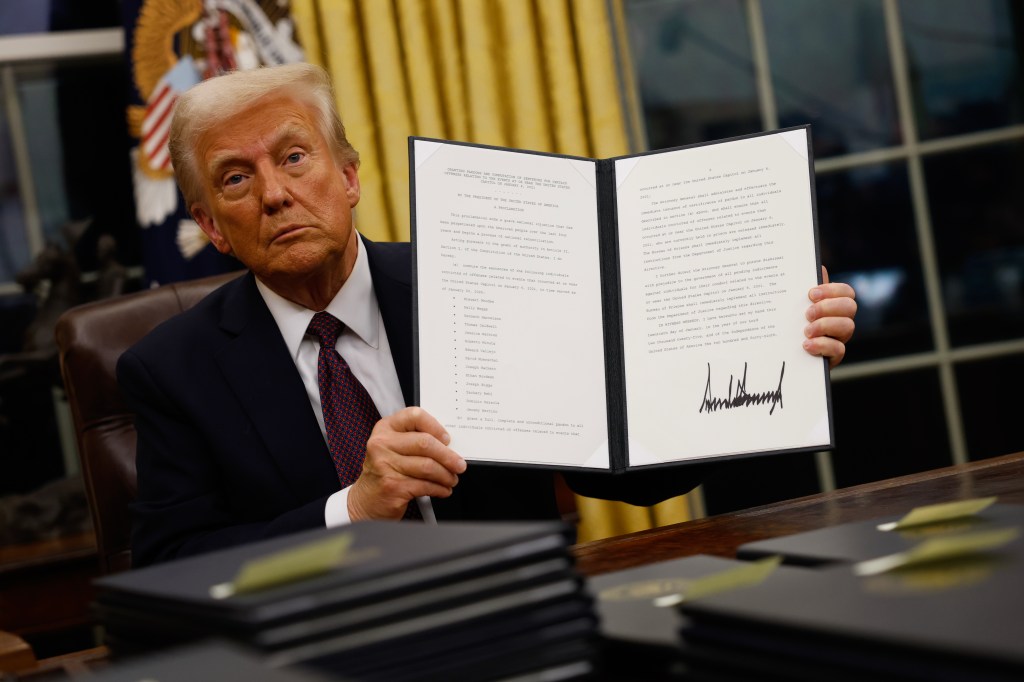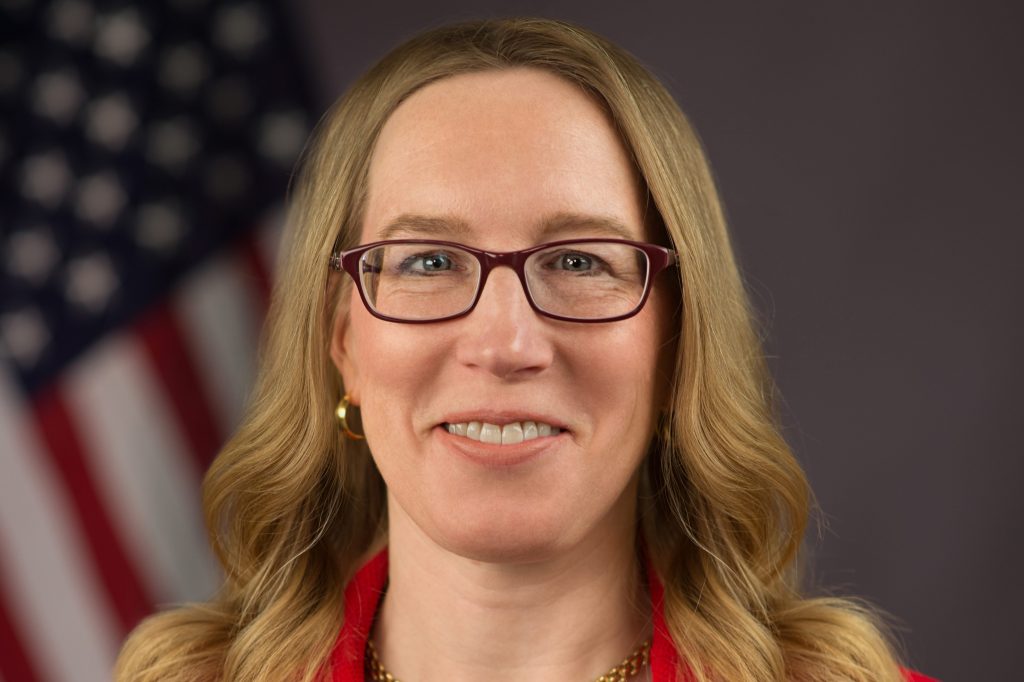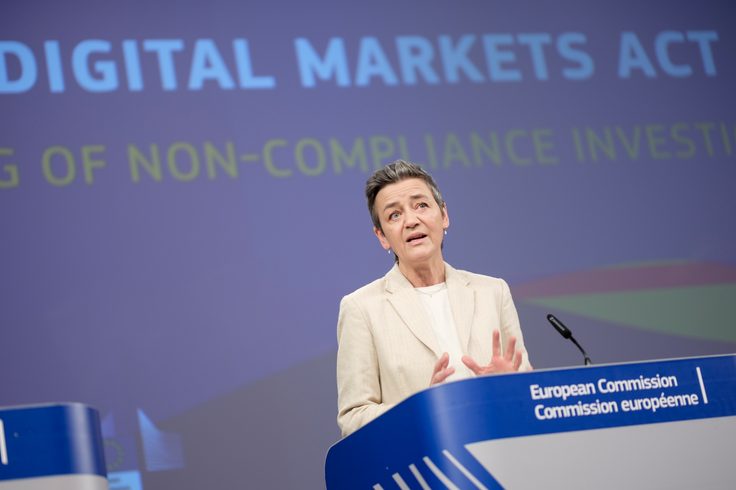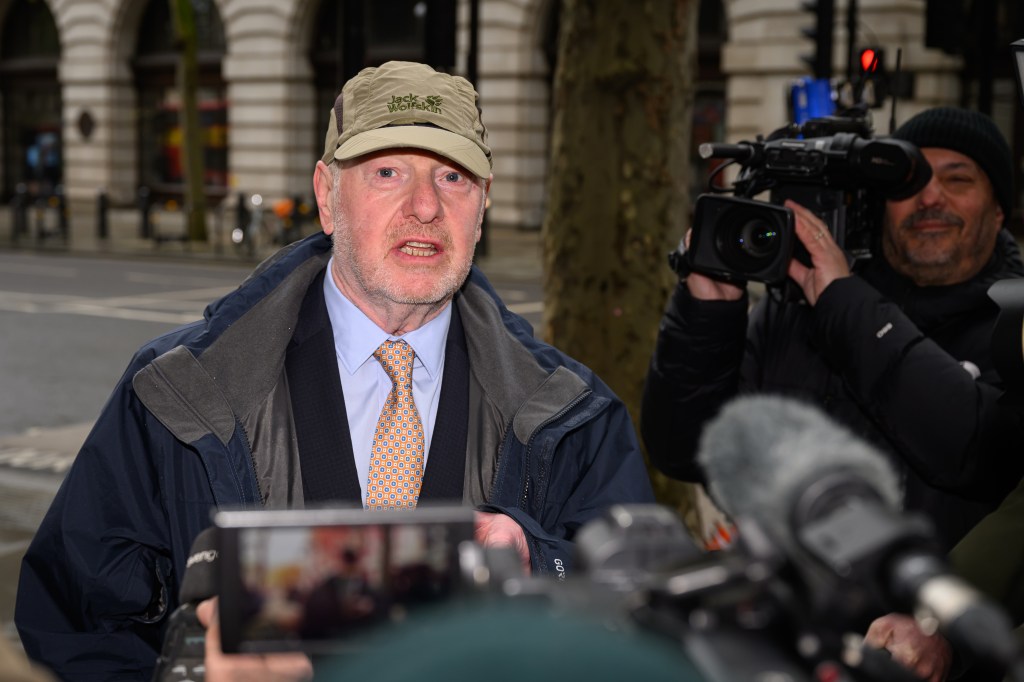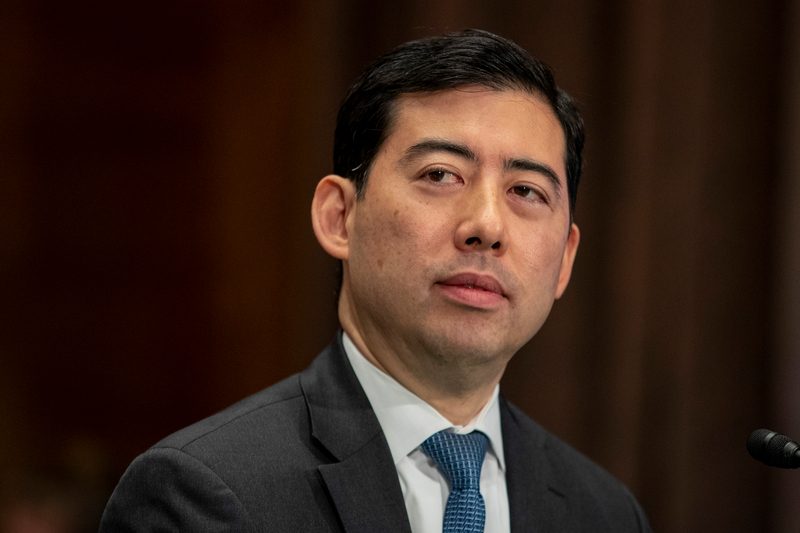The chair of the UK’s Competition and Markets Authority (CMA) has stepped down as the government continues to put pressure on regulators to embrace its ‘pro-growth’ agenda.
The departure of Marcus Bokkerink, who took office in September 2022, was confirmed by the government in a statement on Tuesday evening, and comes off the back of a meeting of the UK’s top regulators with Chancellor Rachel Reeves and Business Secretary Jonathan Reynolds last week.
The government has also confirmed that Doug Gurr, the former UK country head for Amazon, will take over as interim boss and “will lead the CMA on its mission to support growth for the UK.”
Reeves, who was speaking in Davos hours after the departure of Bokkerink was announced, confirmed that the outgoing CMA chair “did not share the government’s strategic approach towards growth.”
“We want to see regulators including the CMA supercharging the economy with pro-business decisions.”
Jonathan Reynolds, UK Business Secretary
The Department for Business and Trade believed the CMA under his leadership “was not sufficiently focused on growth,” a government figure told the Financial Times. But the government accepted in its statement that Bokkerink delivered on the top five priorities he had identified during his time.
Reynolds, while thanking Bokkerink for his service, has also said: “We want to see regulators including the CMA supercharging the economy with pro-business decisions that will drive prosperity and growth, putting more money in people’s pockets.”
Incoming chair Gurr has said he will “help deliver business investment and economic growth in a framework of effective competition and consumer protection.”
The CMA, along with a number of other UK regulators, has been facing mounting pressure from the government in recent months and was singled out by Prime Minister Keir Starmer during an International Investment Summit in London last October.
The government has been facing pressure from business bosses, and is also dealing with rising borrowing costs and a falling pound in recent months.
Rising tensions
While the statement says Bokkerink resigned from his position, there is little doubt he has been forced to step aside as tensions between the government and the regulators continued to rise behind the scenes.
Reeves did not shy away from confessing that there were differences. “The regulators are independent, and the chair of the CMA decided to step down, but he recognised that this Government have got a different strategic approach when it comes to regulation,” she told an audience in Davos, Switzerland, where she was attending the World Economic Forum.
Bokkerink himself took to social media to defend his record. In a statement, he said he had worked for ‘lasting and tangible growth’ during his time at the CMA.
He went on to say he was on the side of consumers and effective competition, “instead of being held back by a few powerful incumbents setting the rules for everyone else.”
“Labour makes it clear that it’s now the champion of exploitation by big business.”
Richard Murphy, financial commentator
Ian Giles, EMEA Head of Antitrust and Competition at Norton Rose Fulbright, told GRIP: “The Government has been very vocal about the growth agenda, but this move may take many by surprise. Marcus Bokkerink was seen as an impressive operator within the CMA, who had a good understanding of business, while also having engaged effectively with the competition law framework that the CMA enforces.”
There was certainly surprise in regulatory circles, with one unnamed source quoted in the FT as saying this was “an extraordinary move by a government to interfere so much in a competition authority” that could have a “chilling and intimidating effect” on independent regulation.
And financial commentator Richard Murphy, an accountancy professor who has been a consistent critic of the government’s economic approach, believes the Labour Party has made it clear “that it’s now the champion of exploitation by big business.”
In a blog, he accused the government of being “on the side of the abuser,” by tearing up consumer protection “so that the UK consumer can be taken for a ride by monopolists without care for the consequences.”
What next?
For the time being, the government will hope that the new interim chair will take a more pro-business and pro-growth approach to regulation in order to push the government’s agenda. A statement said Gurr “will bring a wealth of experience in the technology sector.”
And technology is the sector the government has faced the most pressure over in the past years, with tech giants complaining about the CMA’s aggressive intervention in their affairs. In the latest of such interventions, the regulator said this week it had launched an investigation aimed at assessing “Google’s position in search and search advertising services.”
That’s exactly the sort of regulatory approach the government seems to want to scale back on, in an effort to attract international investment to help a struggling UK economy.
According to Giles: “Recent comments from Government suggest that there may be a desire to rein in the CMA’s more interventionist approach, and to reduce the burden on businesses of engaging with the CMA – even if this does result in reduced enforcement of the rules.”
But the government’s attempt to send a clear signal has prompted puzzlement too, with observers noting that Bokkerink, as the CMA’s non-executive part-time chairman, was not responsible for day-to-day decision making. That role falls to chief executive Sarah Cardell, whose position is now uncertain.
As for Bokkerink, the government has said: “Marcus will continue to make a contribution to public life in a new leadership role, the details of which will be announced in due course,” an indication that it, perhaps, does not want to burn all bridges.

